
Digital Rights Foundation (DRF) held a conference ‘Countering Digital Threats and Building Resilience of Communities’ on 15th December 2023 in Islamabad. The conference brought together experts from across the country to discuss digital safety, online religious freedoms and building a safer Hamara Internet and countering hate speech and disinformation for greater access to the internet for all.
Press Coverage:
DRF’s Legal Team wins case against ARY in favor of Journalist Asma Shirazi
 We laud the recent decision of the Islamabad High Court by Justice Mohsin Akhtar Kayani in "Civil Miscellaneous Appeal No. 16 of 2023, Asma Shirazi versus Council of Complaints through Secretary" in support of Asma Shirazi, a senior female journalist in Pakistan. Represented by the all-women legal team from DRF, which included Nighat Dad, Irum Shujah, Aqsa Javed, Shafia Imran Lati, and Minahil Farooq, this legal victory against the state-owned media watchdog's complaint body marks a significant milestone. It signifies a crucial step in holding accountable those responsible for spreading disinformation, especially when their targets are women journalists. This verdict represents a noteworthy moment in Pakistan's legal landscape. We appreciate the established precedent that now empowers journalists to raise their voices against entities and individuals attempting to tarnish their credibility and work.
We laud the recent decision of the Islamabad High Court by Justice Mohsin Akhtar Kayani in "Civil Miscellaneous Appeal No. 16 of 2023, Asma Shirazi versus Council of Complaints through Secretary" in support of Asma Shirazi, a senior female journalist in Pakistan. Represented by the all-women legal team from DRF, which included Nighat Dad, Irum Shujah, Aqsa Javed, Shafia Imran Lati, and Minahil Farooq, this legal victory against the state-owned media watchdog's complaint body marks a significant milestone. It signifies a crucial step in holding accountable those responsible for spreading disinformation, especially when their targets are women journalists. This verdict represents a noteworthy moment in Pakistan's legal landscape. We appreciate the established precedent that now empowers journalists to raise their voices against entities and individuals attempting to tarnish their credibility and work.
Read the judgement here: https://mis.ihc.gov.pk/attachments/judgements/156193/1/Civil_Miscellaneous_Appeal_No._16_of_2023_638373080860192817.pdf
Nighat Dad at UNSG AI High Level Advisory Board meeting

 Nighat Dad attended the UNSG AI High Level Advisory Board meeting where she worked on setting a robust foundation for a report on AI harms, opportunities and AI governance. This report poised to shape how AI intertwines with our societal fabric. Nighat worked with Antonio Guterres, UN General Secretary, who amidst the Security Council meeting, spent number of hours to engage in discussions about AI governance with the members of the High-Level Advisory Body on AI.
Nighat Dad attended the UNSG AI High Level Advisory Board meeting where she worked on setting a robust foundation for a report on AI harms, opportunities and AI governance. This report poised to shape how AI intertwines with our societal fabric. Nighat worked with Antonio Guterres, UN General Secretary, who amidst the Security Council meeting, spent number of hours to engage in discussions about AI governance with the members of the High-Level Advisory Body on AI.
Policy Initiatives:
High-Level Advisory Body on AI | Interim Report: Governing AI for Humanity
The United Nations' High-Level Advisory Body on AI launched its "Interim Report: Governing AI for Humanity" discusses the global governance deficit in AI and makes preliminary recommendations. The report emphasizes the importance of inclusive, public-interest-focused governance, integrating AI with data governance, and basing AI governance on the UN Charter, International Human Rights Law, and the Sustainable Development Goals. It outlines the institutional functions required for international AI governance, such as conducting regular assessments of AI's future directions, developing standards, and promoting international collaboration. The report advocates for a balanced approach in which AI benefits humanity while mitigating risks.
Read the entire report here: https://www.un.org/sites/un2.un.org/files/ai_advisory_body_interim_report.pdf
#16DaysofActivism Campaign
- Digital Art Competition: DRF’s program team held a digital art exhibition of feminist digital art in Pakistan with 6 digital artists on the topic ‘AI and Generative AI’s Impact on Technology- Facilitated Gender-based Violence in South Asia.’
- Digital Art Competition Winners Live Chat:


Link to video: https://www.instagram.com/p/C0oMIUNLgrw/-
Countering Digital Threats Toolkit Launch | X Space

DRF’s legal team discussed our “Countering Digital Threats” toolkit. They shared information on cybercrimes, relevant laws, and steps on how to keep yourself safe online. It is a go-to manual for a secure online world.
Link to space: https://twitter.com/i/spaces/1ypJdkadwzqGW
-
75th Anniversary of Universal Declaration of Human Rights

Saanjhi Kahaniyan
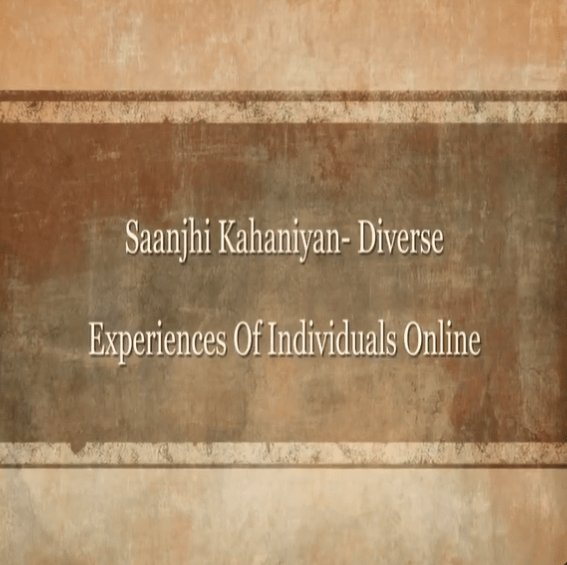
DRF's communications team wrote & co-directed 'Saanjhi Kahaniyan: Diverse Experiences of Individuals Online', a theater play about DRF's Cyber Harassment Helpline cases. The play depicted vulnerable people's online experiences.
Watch the play here: https://youtu.be/h9Xg9LDkmkw
Press Coverage:
Nighat Dad speaks to Hum News about AI
 DRF's Executive Director Nighat Dad talked to Hum News about how AI has the potential to change the world, but we must take into account the dire consequences of misusing AI and Generative AI & find ways to govern it globally. This is what she as a member of UN's AI Advisory Body focus on.
DRF's Executive Director Nighat Dad talked to Hum News about how AI has the potential to change the world, but we must take into account the dire consequences of misusing AI and Generative AI & find ways to govern it globally. This is what she as a member of UN's AI Advisory Body focus on.
Unmasking the Epidemic of Womens Abuse | Daily Times
The article discusses the severe issue of women's abuse in Balochistan, Pakistan, particularly focusing on teenage girls facing cyberbullying. It highlights the situation in cities like Quetta and Turbat, where young girls preparing for medical college admission tests are subjected to cyberbullying. The Digital Rights Foundation (DRF) is mentioned in reference to its 2018 report, which revealed that 72% of Pakistani women subjected to cyberbullying experienced various forms of online persecution, impacting their education and well-being. The article calls for comprehensive strategies to address these issues, including educational reforms and legal measures.
https://dailytimes.com.pk/1156203/unmasking-the-epidemic-of-womens-abuse/
Events:
Nighat Dad at the 75th Anniversary of Genocide Convention - Human Rights Council

DRF's Executive Director Nighat Dad spoke on the 75th Anniversary of Genocide Convention - Human Rights Council addressing the role of social media platforms in response to content that incites violence and discrimination.
Watch it here: https://webtv.un.org/en/asset/k1u/k1uv9ghl6o
Nighat Dad speaks at Human Rights 75 – High-level Event by UN

Nighat Dad spoke at the UN 75 High-level Event "The Future of Human Rights and Digital Technologies," and said that now that we're talking about emerging tech and how governments will make frameworks and policies, we should take a pause and actually think about what we've done in the past 15 years, and whether we're not making the same mistakes as before. Are we thinking about the existing international human rights frameworks and CSO interventions? That, I believe, should be our starting point.
Watch it here: https://webtv.un.org/en/asset/k1d/k1diw7g1wv
One Day Self-care Wellbeing Workshop
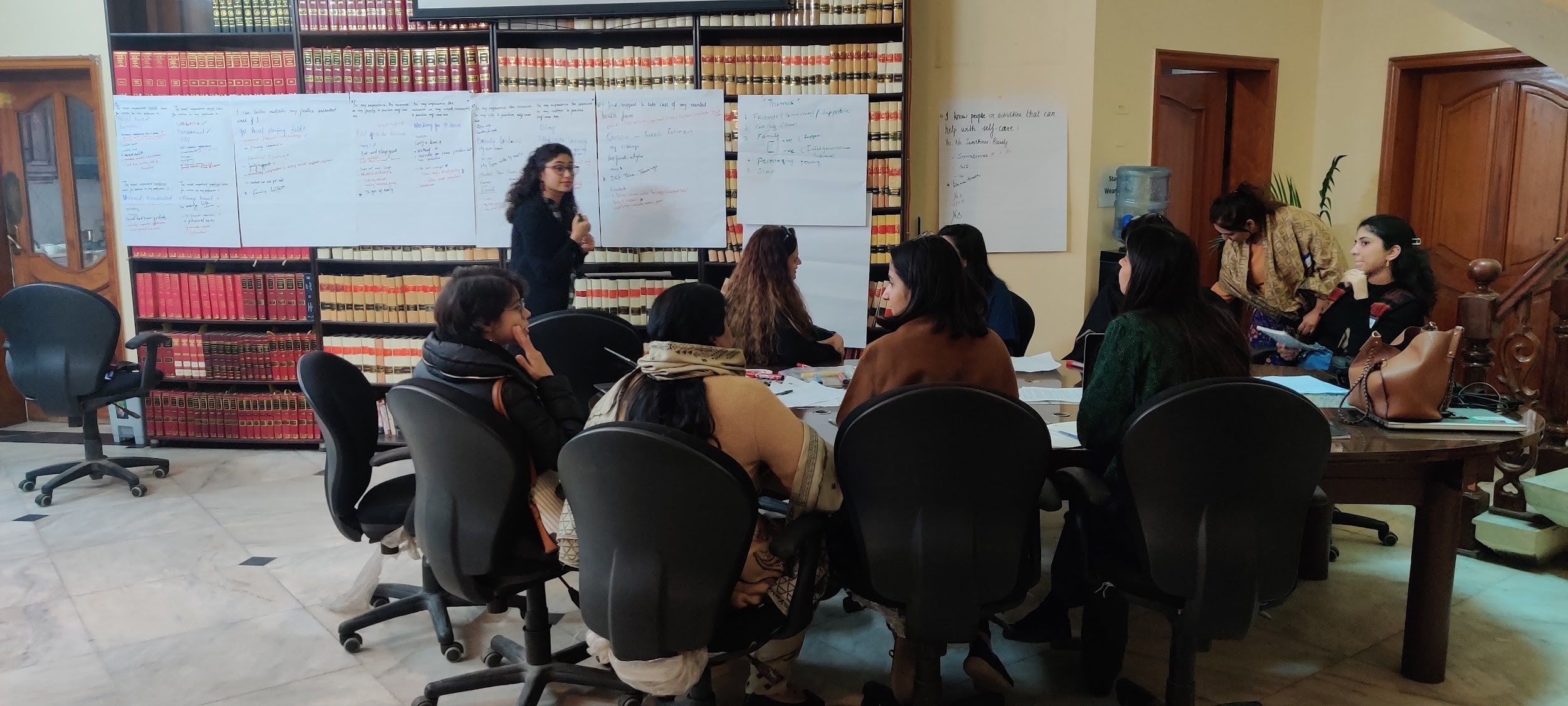
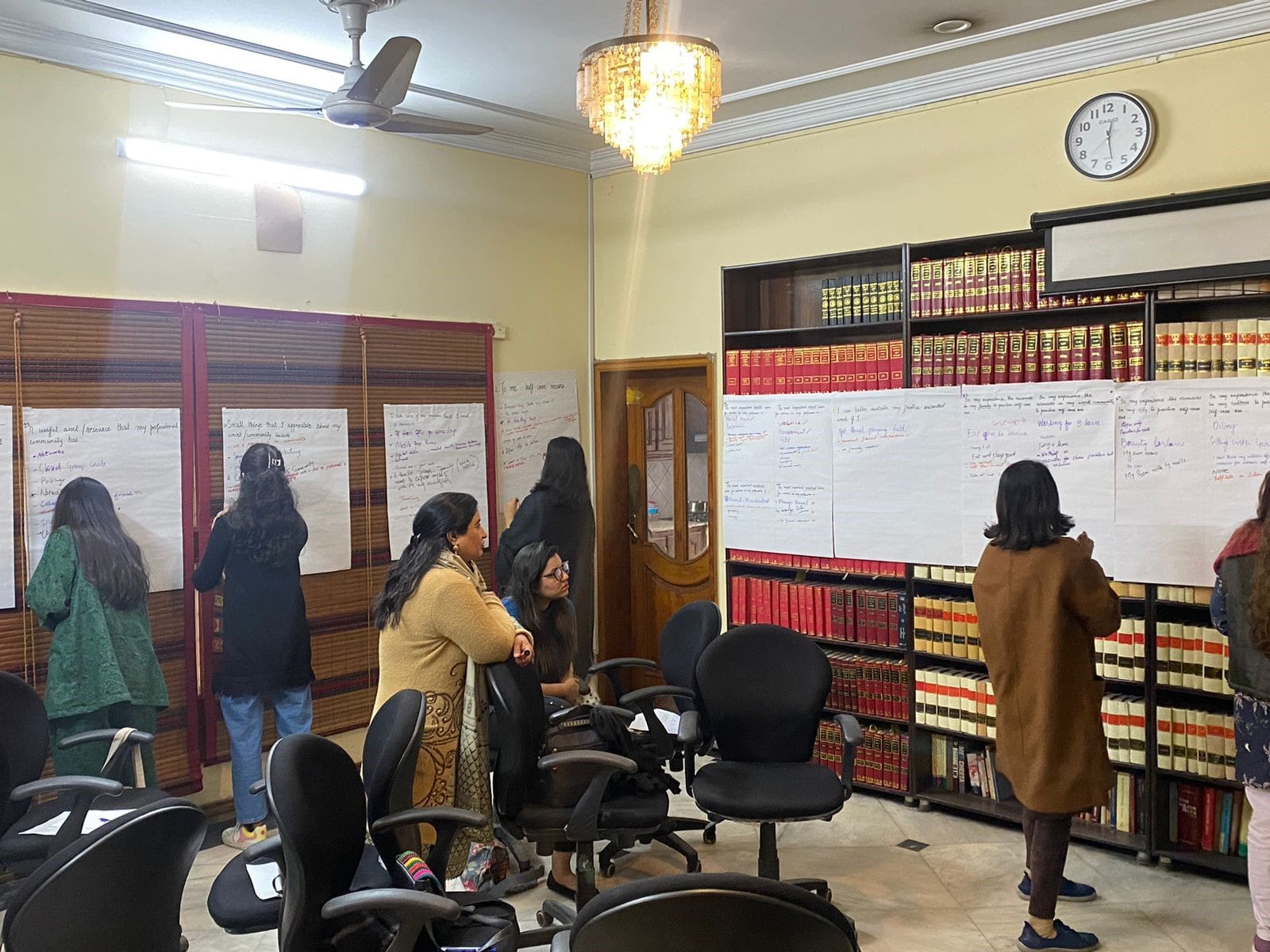
DRF in collaboration with Dr. Nabiha Chaudhary held a one-day participatory workshop with women human rights defenders on 12th December 2023. The workshop addressed the specific needs of woman human rights defenders relating to self-care and well-being and also addressed burnout that individuals face in the field.
Source Verification and Fact-Checking Workshop During Elections
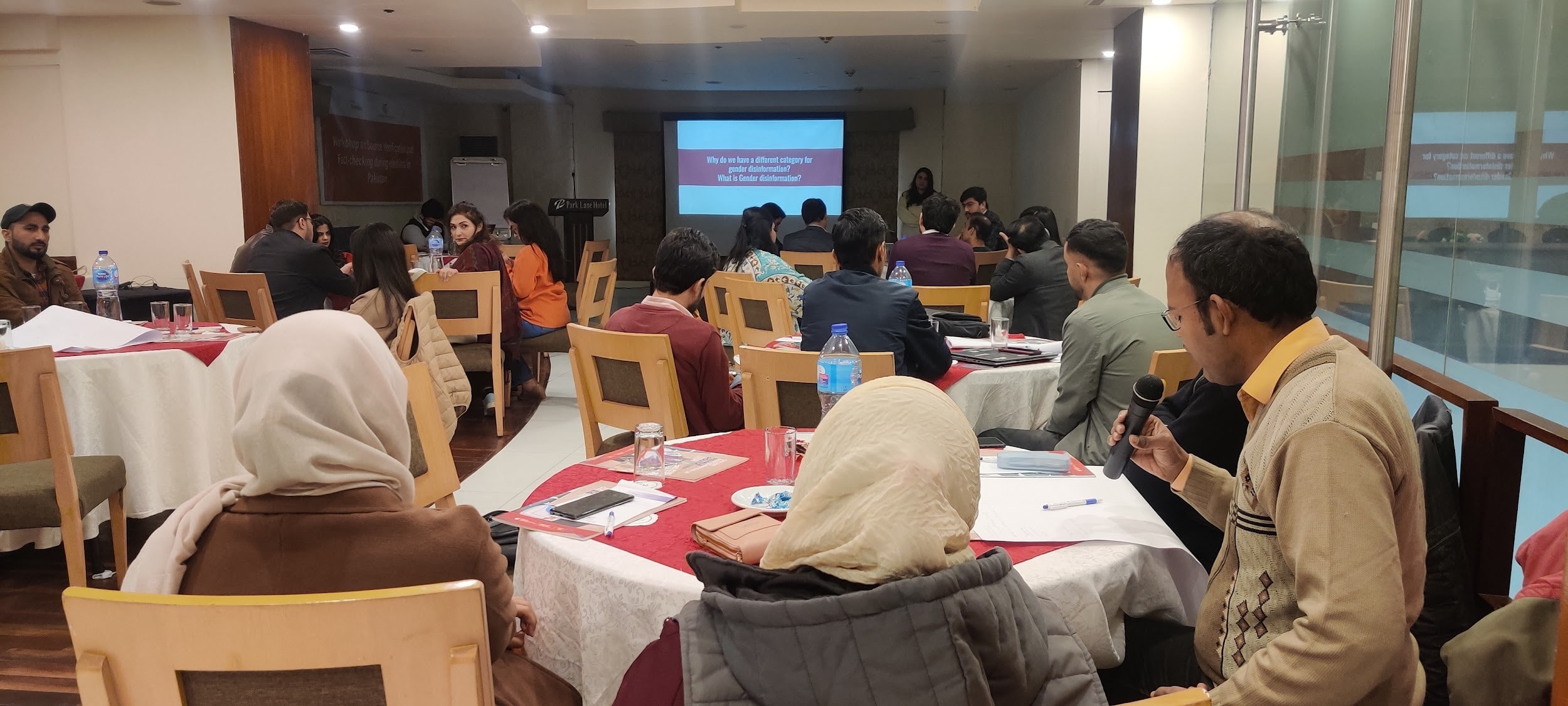
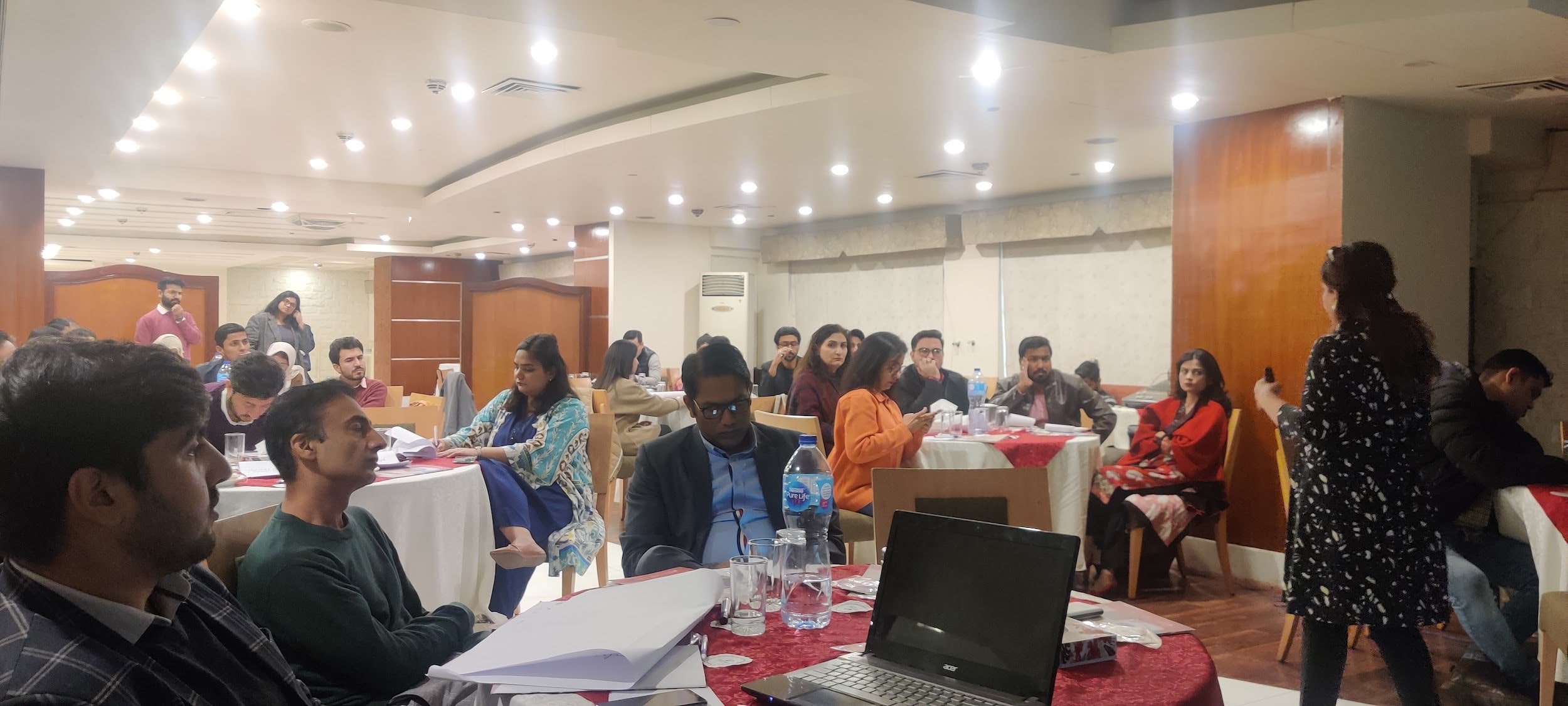
DRF in collaboration with Meta held a one-day workshop on source verification and fact-checking workshop in times of elections in Lahore with 30 journalists. The workshop addressed election-specific disinformation, misinformation and hate speech and presented tools to participants for verifying the authenticity of the news.
Capacity Building Workshop in Lahore
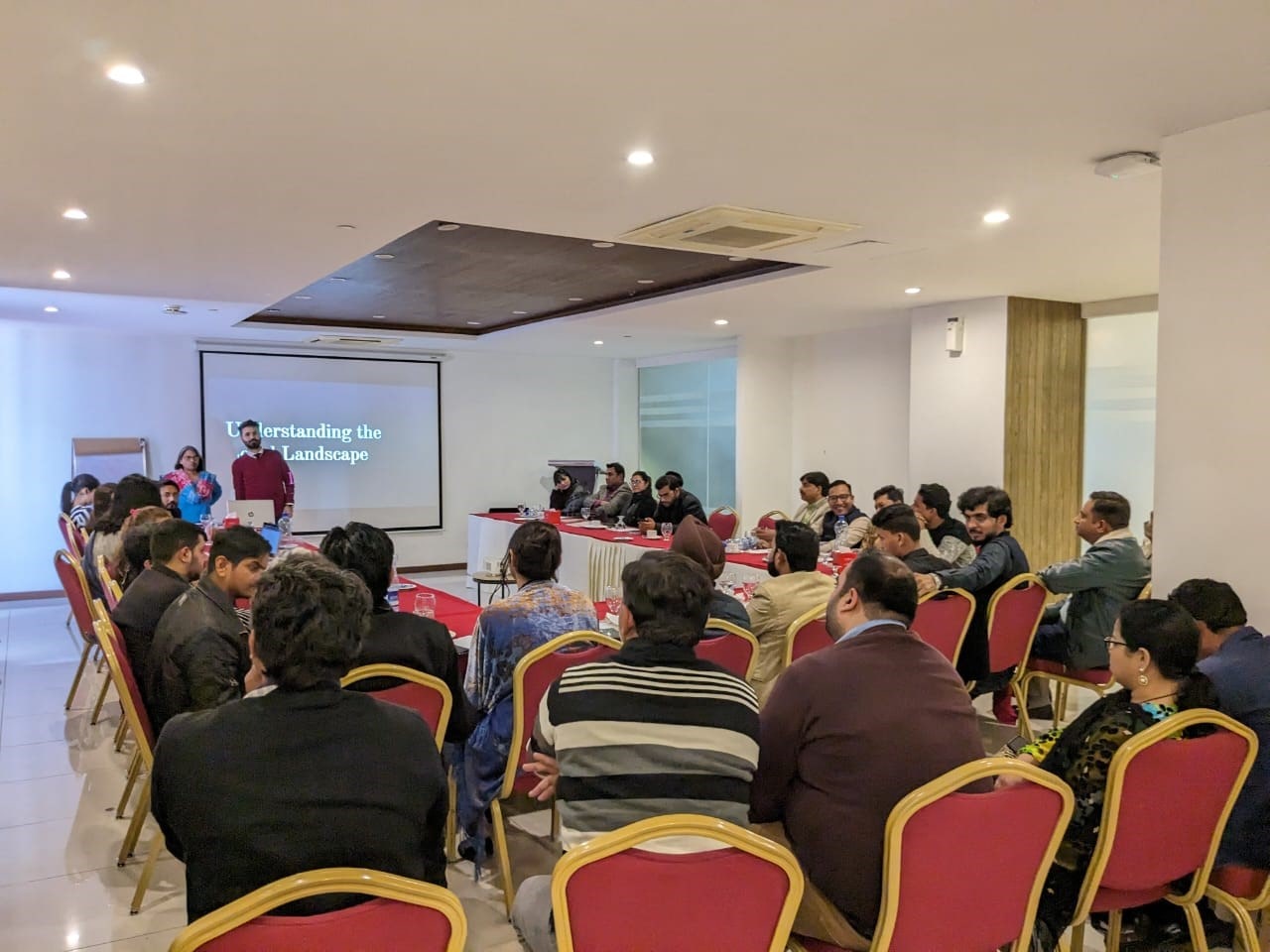 DRF is organizing a series of three in-person capacity building workshops on navigating technology-facilitated online harms during the upcoming elections Pakistan. Through our series of workshops, we aim to build the capacity of social media users on different forms and nature of technology-facilitated online harms and the best practices to ensure that the digital spaces are accessible and their participation is safe in the charged political environment during the elections. The first was held on 12th December in Lahore with 36 participants from diverse religious backgrounds. They shared their experiences of online spaces and how it has impacted their lives in the real world.
DRF is organizing a series of three in-person capacity building workshops on navigating technology-facilitated online harms during the upcoming elections Pakistan. Through our series of workshops, we aim to build the capacity of social media users on different forms and nature of technology-facilitated online harms and the best practices to ensure that the digital spaces are accessible and their participation is safe in the charged political environment during the elections. The first was held on 12th December in Lahore with 36 participants from diverse religious backgrounds. They shared their experiences of online spaces and how it has impacted their lives in the real world.
IFEX Generative AI Cafecito
DRF attended the session “Hey, ChatGPT? We have Questions!” - IFEX’s virtual Cafecito on the implications of Generative AI for our work and our world on 5th December. The event focused on the adoption of generative AI and the human rights implications due to it. Conversations around the potential impact of generative AI on the work of human rights defenders and civil society also took place in the session in breakout groups. DRF’s programs lead Seerat Khan facilitate a breakout session for the closed event.
DRF Updates:
Cyber Harassment Helpline
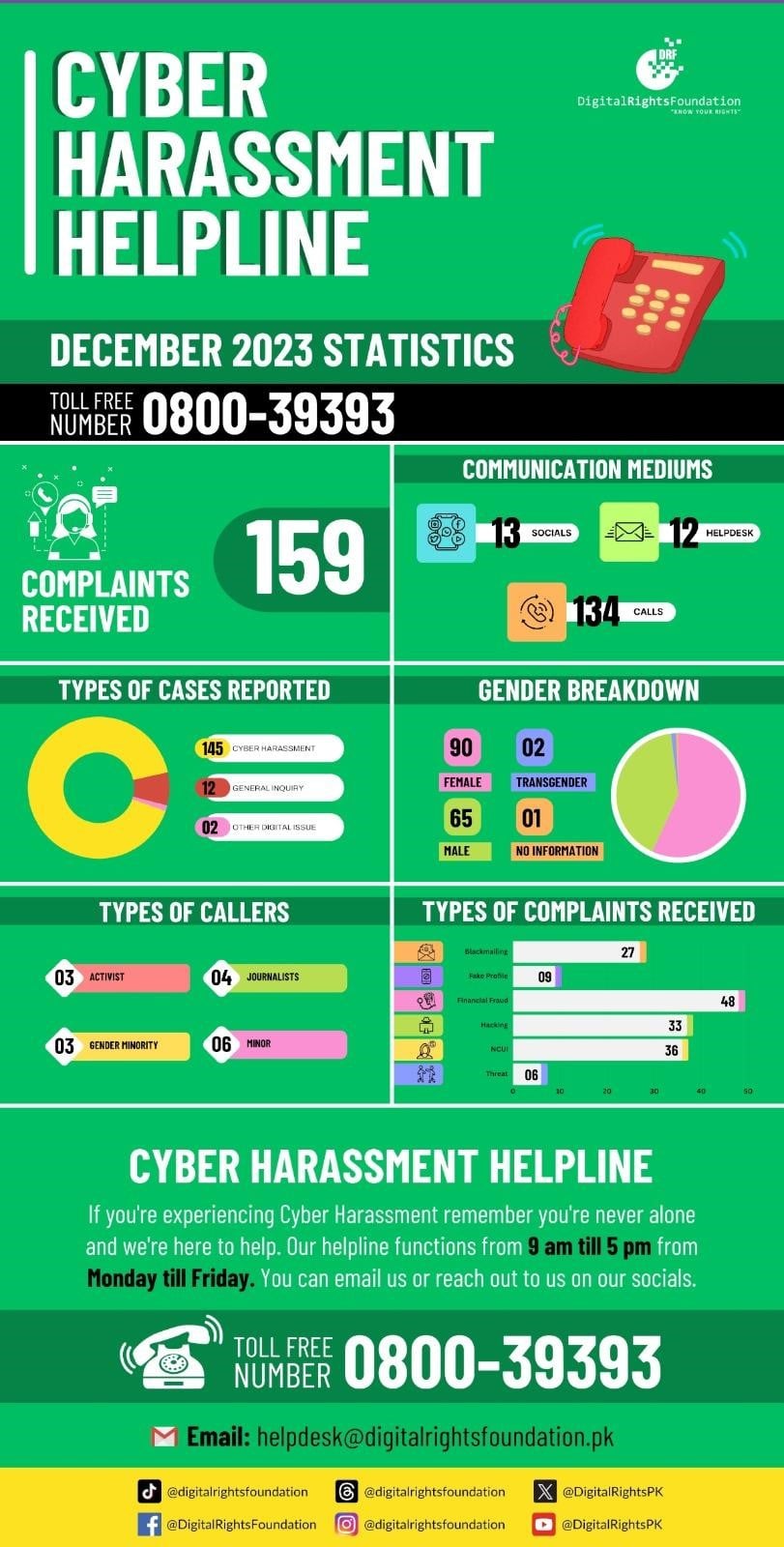
The Cyber Harassment Helpline received 159 complaints in total December, with 90 complaints by women. If you’re encountering a problem online, you can reach out to our helpline at 0800-39393, email us at [email protected] or reach out to us on our social media accounts. We’re available for assistance from 9 am to 5 pm, Monday to Friday.
IWF Portal
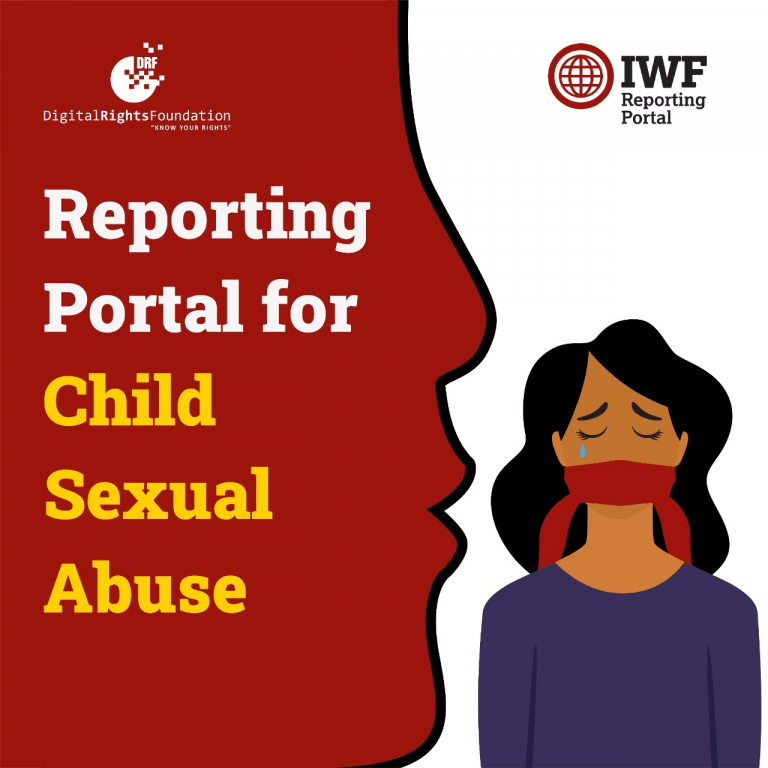
DRF in collaboration with Internet Watch Foundation (IWF) and the Global Fund to End Violence Against Children launched a portal to combat children’s online safety in Pakistan. The new portal allows internet users in Pakistan to anonymously report child sexual abuse material in three different languages- English, Urdu, and Pashto.
www.report.iwf.org.uk/pk
StopNCII.org
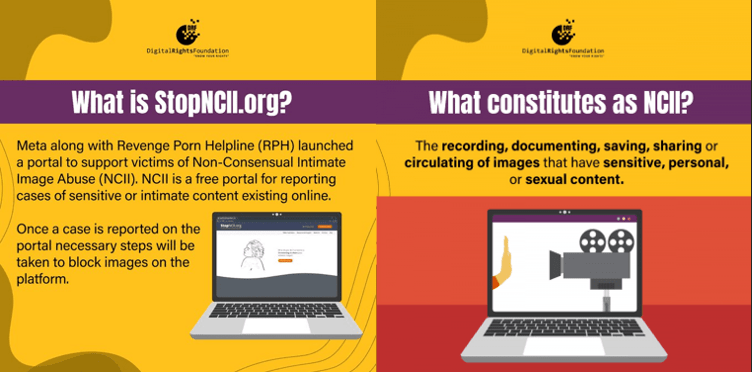
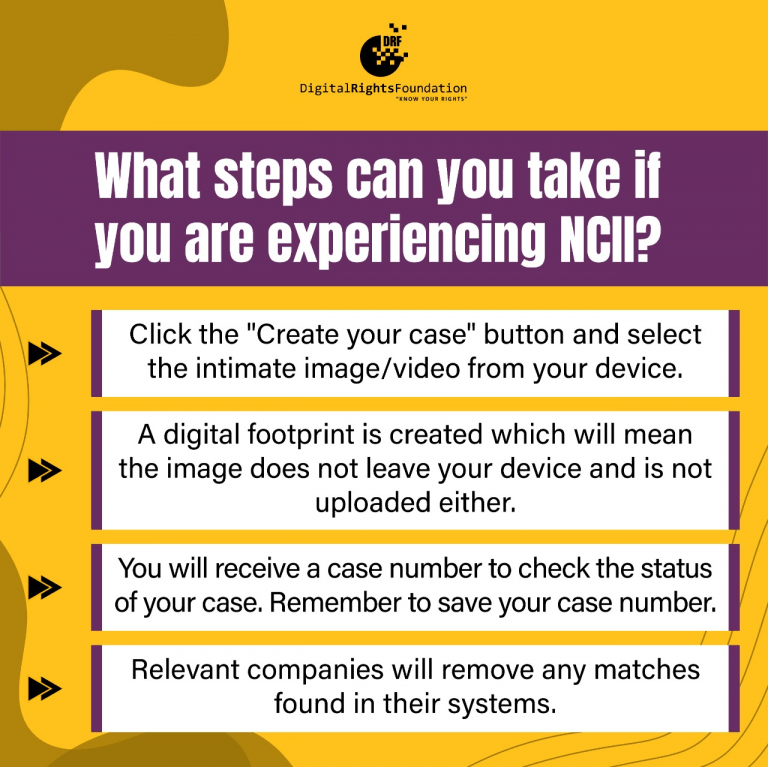
Meta along with Revenge Porn Helpline (RPH) has launched a portal to support victims of Non-Consensual Intimate Image Abuse (NCII). NCII is a free portal for reporting cases of sensitive or sexual content existing online. Once you report a case, the necessary steps will be taken to block the images from the platform.
https://stopncii.org/





























